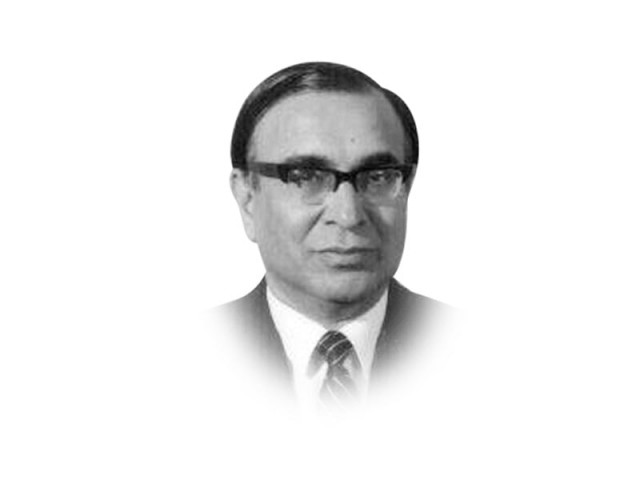What 9/11 has meant to Pakistan
My fear was General Musharraf would be blinded by desperate need to use the invasion to gain international legitimacy.

What 9/11 has meant to Pakistan
Ten years on, in this season of remembrance and reappraisal, one has to be Dick Cheney to still insist that America took the right road. The more sober voices have an altogether different tenor. Paul Kennedy, who taught us how to plot the rise and fall of great powers, argues that the decisions made by George Bush distracted America from many other things going on in the world, from the erosion of its financial strength, its own domestic condition and from its need to have a wider view of global change. Several other commentators are even more specific in linking the decline of United States’ material and moral power to the choices made then, in Washington. Across the Atlantic, in the capital that blindly followed Washington, the former director-general of MI6, Baroness Manningham-Buller, has just told her worldwide Reith Lecture audience that 9/11 was “a crime, not an act of war” and that neither Saddam Hussein nor his regime had anything to do with 9/11.
This is what some of us in Pakistan tried to tell the Musharraf regime as Bush declared his global war and again, when God told him to invade Iraq. My personal memories are of infinite sadness. The neoconservative ideologues in Washington converted the tragedy into an opportunity for the ‘reconquest’ of the Greater Middle East. Pakistan was instantly chosen again as the frontline state for its first phase. Very early on, I questioned the GWOT concept and recommended a light engagement with this untenable construct. My fear was that General Musharraf would get blinded by his desperate need to use the invasion to gain international legitimacy. At home, he sold his decision by propagating that Pakistan would otherwise be bombed into Stone Age and that that the conflict would last only three weeks. My saddest memory is that our strategic community, especially my colleagues occupying senior positions in the Foreign Office, adopted the new vernacular of anti-terrorism uncritically to become cheerleaders of George Bush’s crusade.
America, says Kennedy, was distracted from many objectives; hapless Pakistan got completely driven off course from its own national interest. As the backlash gained intensity and terrorist cells multiplied all over the country, coalition forces skilfully shifted the conflicts centre of gravity to Pakistan, exposing its inherent limitations in fighting this new kind of war. Even the outcome of its democratic processes such as a general election was engineered to ensure continuation of Musharraf’s disastrous decisions. India and China harvested gains of their independent understanding of the GWOT and made unprecedented progress. Pakistan simply stopped planning anything for its own huddled masses and concentrated on winning approval for its performance in the GWOT. The 1990s were a lost decade because the internecine conflict of major parties prevented the country from taking advantage of the great opportunities available in the post-1989 world. The first decade of the 21st century was marked by Pakistan’s economic and social decline as infrastructure deteriorated and renewal in key sectors such as power got struck off the national agenda. Blown off course by 9/11, Pakistan is still adrift with its helmsmen remaining singularly incapable of a mid-course correction. It cannot even stanch the fearful haemorrhage of human lives and material resources. On that painful day in New York, a distant state called Pakistan lost its national narrative and now does not have the leadership to recover it.
Published in The Express Tribune, September 12th, 2011.


















COMMENTS
Comments are moderated and generally will be posted if they are on-topic and not abusive.
For more information, please see our Comments FAQ